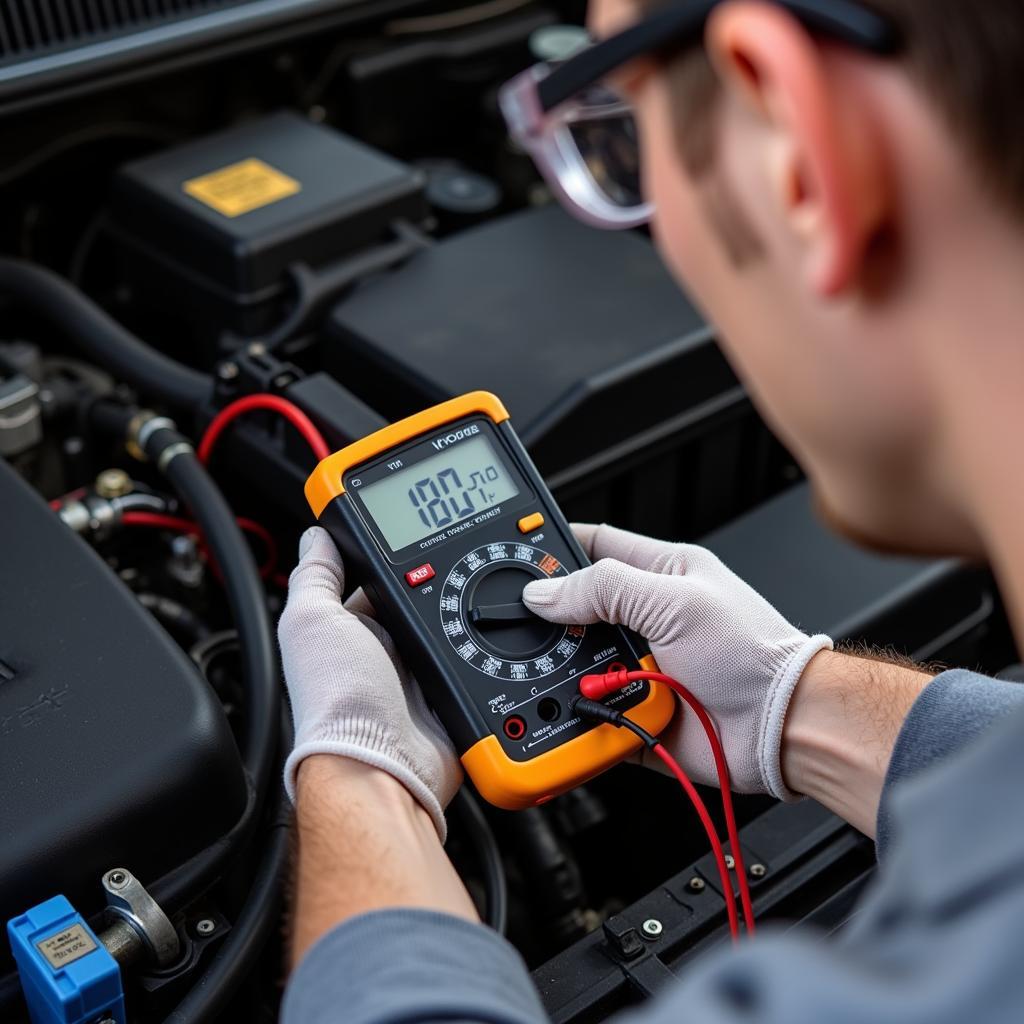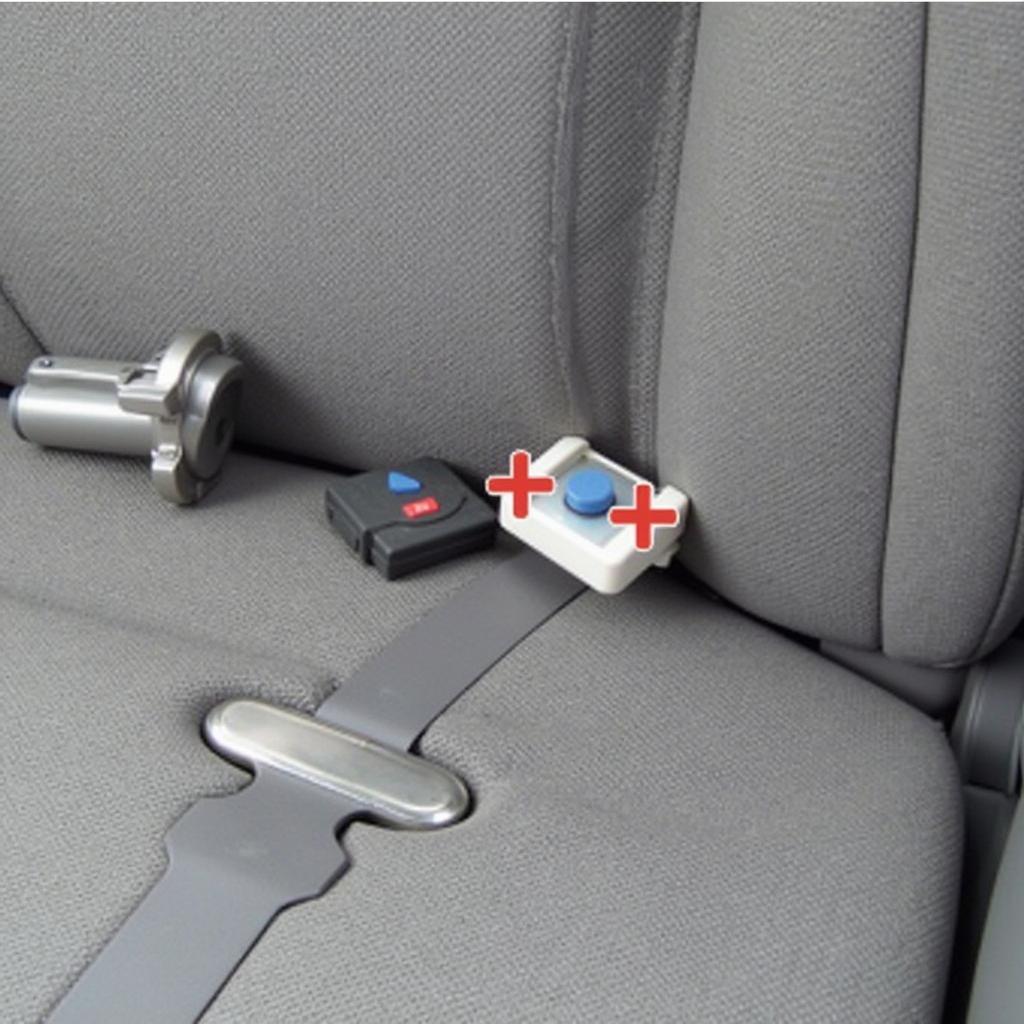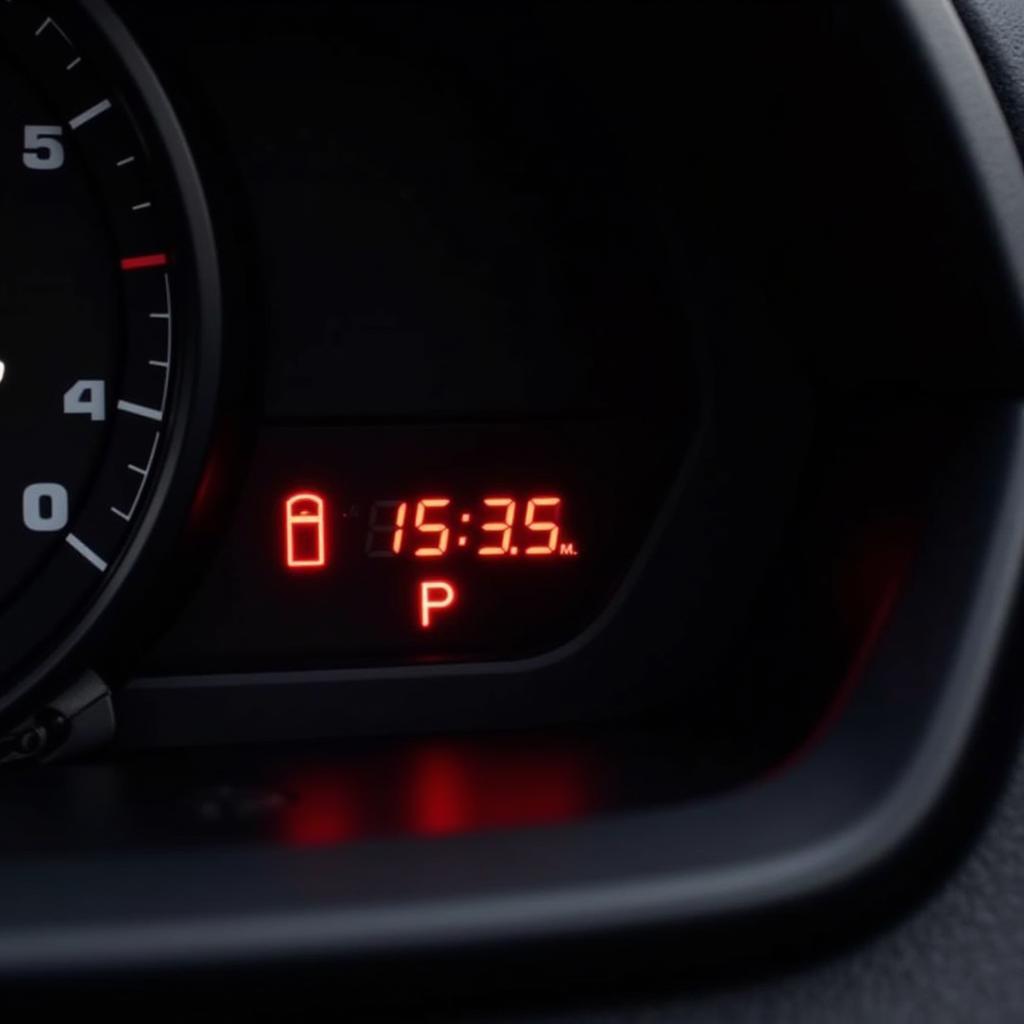A fully charged battery yet your car won’t start? This frustrating scenario is more common than you think. This guide will delve into the various reasons behind a “battery charged car not starting” issue and provide you with the knowledge and steps to diagnose and potentially fix the problem yourself.
Why is My Battery Charged Car Not Starting?
Several culprits can cause a car with a fully charged battery to refuse to start. These can range from simple issues like a faulty starter to more complex electrical problems. Let’s explore the most common reasons:
Starter Motor Issues
The starter motor is responsible for cranking the engine. If it’s malfunctioning, your car might not start even with a healthy battery. A clicking sound when you turn the key can indicate a failing starter.
Faulty Ignition Switch
The ignition switch supplies power to the starter. A defective switch can prevent the car from starting, even with a fully charged battery. Sometimes, jiggling the key in the ignition can temporarily fix this issue, signaling a problem with the switch.
Bad Alternator
While a bad alternator won’t typically prevent a car from starting initially if the battery is charged, a failing alternator could be draining the battery even while driving. This means the battery might appear charged, but it’s not holding a charge properly.
 Checking Car Battery Voltage with Multimeter
Checking Car Battery Voltage with Multimeter
Corroded Battery Terminals
Corroded battery terminals can disrupt the flow of electricity, hindering the starter from receiving enough power. Cleaning the terminals with a wire brush and baking soda solution can often resolve this issue. If your current car radio lacks features, consider an upgrade. Perhaps a touch screen bluetooth backup camera gps car radio is what you need.
Fuel System Problems
A lack of fuel or a faulty fuel pump can prevent the engine from starting, even with a good battery and starter. Check your fuel gauge and listen for the fuel pump’s hum when you turn the key to the “on” position.
Electrical Issues
Wiring problems or blown fuses can interrupt the flow of power to essential components, preventing the car from starting. A thorough inspection of the wiring and fuses is necessary to pinpoint the issue.
Troubleshooting Steps for a Battery Charged Car Not Starting
-
Check the battery voltage: Use a multimeter to verify the battery’s charge. A reading of around 12.6 volts indicates a healthy battery. You can find quality car radios with advanced features like GPS and Bluetooth. Consider a touch screen car radio gps bluetooth backup camera for an enhanced driving experience.
-
Inspect the battery terminals: Clean any corrosion from the terminals and ensure they are tightly connected.
-
Test the starter: Tap the starter motor gently with a hammer while someone tries to start the car. If the car starts intermittently, the starter is likely faulty.
-
Check the ignition switch: Try jiggling the key in the ignition. If this helps, the ignition switch may need replacement.
-
Inspect the fuel system: Check the fuel gauge and listen for the fuel pump. If you suspect a fuel problem, consult a mechanic.
-
Check fuses and wiring: Inspect the fuses related to the starting system and look for any damaged wiring.
Expert Insights
“Many people overlook simple things like corroded battery terminals,” says John Smith, Senior Automotive Technician at Smith Auto Repair. “A quick cleaning can save you a lot of time and money.”
“A failing alternator often gets overlooked when diagnosing starting problems,” adds Jane Doe, Lead Electrical Systems Engineer at Acme Auto Electric. “While a charged battery may start the car, a failing alternator won’t keep it running.”
Conclusion
A battery charged car not starting can be due to various reasons, from a simple loose connection to more complex electrical issues. By following the troubleshooting steps outlined in this guide, you can often pinpoint the problem and potentially fix it yourself. If the problem persists, consult a qualified mechanic for further diagnosis and repair. Remember to check out our other helpful articles on car electronics, such as audio radio for car radio bluetooth with gps and satellite or options on how to convert car radio to gps bluetooth backup camera.
FAQ
- Can a bad alternator prevent a car from starting? While a bad alternator won’t usually prevent a car from starting immediately with a charged battery, it can drain the battery, causing starting problems later.
- What should I do if my car clicks when I try to start it? A clicking sound often indicates a failing starter motor.
- How can I clean corroded battery terminals? Use a wire brush and a mixture of baking soda and water to clean corroded terminals.
- What voltage should a fully charged car battery read? Around 12.6 volts.
- What are the signs of a faulty ignition switch? Difficulty turning the key, the car starting intermittently, or the car not starting at all, even with a charged battery, are all signs of a faulty ignition switch. If you’re looking to upgrade your car’s entertainment system, we have a great selection of car radio head unit bluetooth gps double din 10 in.
- Could a fuel problem prevent my car from starting even with a good battery? Yes, a lack of fuel or a faulty fuel pump can prevent the engine from starting.
- What should I do if I can’t figure out why my car won’t start? If you’ve tried the troubleshooting steps and your car still won’t start, it’s best to consult a qualified mechanic for professional diagnosis and repair.


